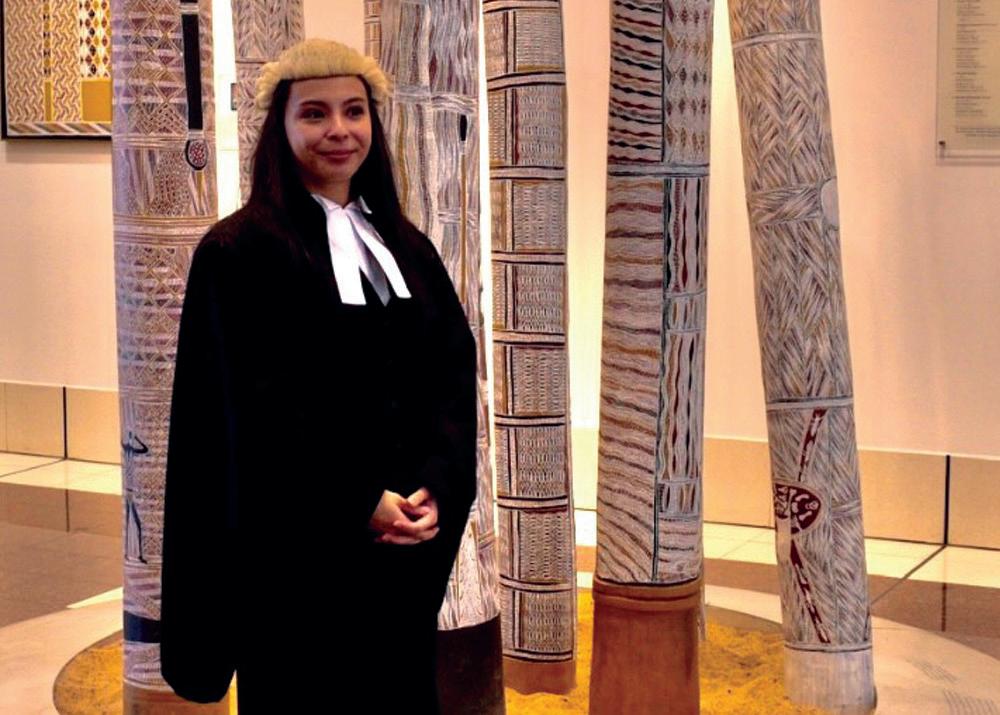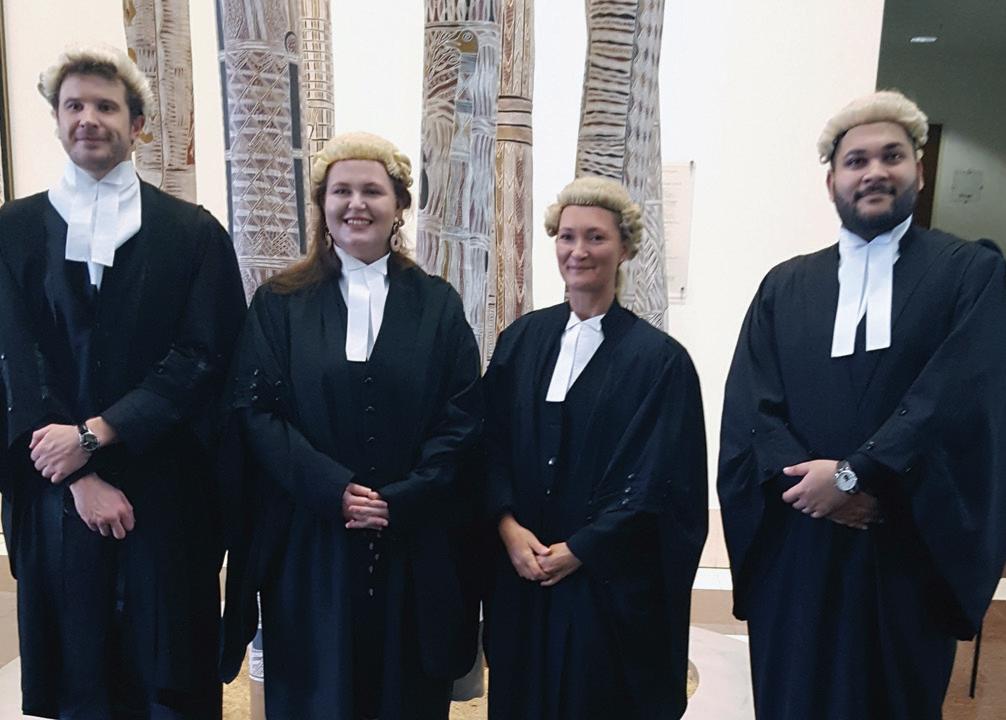
5 minute read
New service: Migration and family violence advice for women
from Balance 1-21
AMBER RUSSELL
LEGAL PRACTITIONER CENTRAL AUSTRALIAN WOMEN’S LEGAL SERVICE
Advertisement
New service
Migration and family violence advice for women on temporary visas
CAWLS works with socially and economically disadvantaged women in a region which generally lacks the services and support found in other areas. The region also has one of the highest incidences of DFV in Australia, and has experienced a significant increase in DFV over the past year.1
Prior to the emergence of COVID-19, there had been a trend towards increasing numbers of Culturally and Linguistically Diverse (CALD) women and families migrating to the Northern Territory. This has been largely associated with the Federal and Territory Government policies on migration pathways, and the emphasis on migration to regional Australia as a means of obtaining permanent residency. According to the Australian Bureau of Statistics (ABS) the migration population in the Northern Territory increased by 15.8% from 2007 to 2016.2 As a consequence, the numbers of CALD women on temporary visas (including tourist, bridging, temporary skilled visa, partner visas) presenting at our service for advice about family law and domestic violence has generally increased. For many of these women their partners are using their temporary visa status as tool to exert coercive control.
The forms of violence against CALD women by intimate partners can include the threat of the cancellation of visa sponsorship and deportation, threats to annul the marriage with the consequence of bringing shame upon the woman and her family, threats of abandonment, demanding pregnancies be terminated or not permitting pregnancy, regular physical and sexual violence and denigrating comments about the woman to family and friends.
CALD women are extremely vulnerable when experiencing DFV in the Northern Territory for a range of reasons including:
● Migration status—although domestic violence cuts across all migration streams, there are particular issues that arise for women experiencing DFV Australia on temporary visas.
● Limited access to culturally sensitive legal advice including migration advice.
● Limited available legal services with specialist knowledge around the intersectionality of migration law, DFV law, family law and employment law issues.
● The additional remoteness and isolation of the Central Australia and Barkly region.
● The identification of DFV specific to the woman’s culture.
● The limited availability of female interpreters.
The demand for our service by CALD women experiencing DFV, specifically in seeking migration advice has continued to grow during COVID-19. COVID-19 heightened the challenges for women on temporary visas in Australia who suffer DFV as a result of unprecedented economic hardship experienced across Australia. The Australian Government introduced a range of temporary economic support measures to assist people who lost their jobs and faced hardship due to COVID-19. These measure were intended to provide particularly vulnerable people with sufficient nutrition, housing, water and sanitation, health care, energy and other essential goods and services.
However, some of the most vulnerable people in Australia were, and continue to be, excluded from these income support measures, specifically people on temporary visas. As a consequence of the lack of funding and ineligibility for Centrelink and Medicare, many temporary visa holders experiencing DFV remain unable to access appropriate services, including legal advice. There are widespread concerns amongst DFV specialist services that many of these women find it impossible to reach out for help and they are largely invisible in our community.
One of the most significant barriers to CALD women seeking legal advice is the uncertainty around their migration options should they decide to proceed with separating their current partner/ spouse. Providing prompt migration advice for these women and outlining their visa options, can often result in increased engagement with legal services for other legal needs such as DFV, family law, child protection and employment law.
In response to this significant need, in March 2021, CAWLS will be expanding its service provision on a pilot basis to include migration advice and support services for disadvantaged women across the Northern Territory.
The provision of migration advice will extend to women who are located beyond our general service delivery area of Central Australia and the Barkly. CAWLS will work with other specialist legal services to facilitate referrals for discrete migration advice, working in partnership with the referring service who will continue to provide advice in other areas and integrated support subject to their own operating guidelines.
Women in the NT region experiencing domestic and family violence will be able to access migration advice at the same time as they access other CAWLS integrated support services and other legal services across the NT.
Furthermore, as part of the Migration Hub, CAWLS has partnered with the Multicultural Services of Central Australia MCSCA to assist with their project to collect up-to-date demographic information for migrants in order to establish a reliable data-set and to understand the experience, aspirations and challenges faced by migrants in Central Australia. This data is intended to assist in informing the government’s decision making in providing services for migrants in the regions. >
Working with community organisations and bodies such MCSCA, CAWLS will also focus on community and service sector legal education to build awareness and understanding of the intersection between migration law, family law and family and domestic violence legislation. The aim is to increase general community awareness for vulnerable women on temporary visas who are experiencing DFV and are concerned about leaving their partners/spouses due to the uncertainty around their migration options.
It is envisaged that this service will promote more proactive engagement with legal services, courts, government authorities and support service providers in order to reduce and eliminate DFV within the CALD community. If you would like to learn more about our referral processes or invite a CAWLS Migration Lawyer to speak to your organisation, please contact us at enquiries@cawls.org.au
Endnotes
1 PFES stats 2 Australian Bureau of Statistics (ABS), Regional
Population Growth, Australia, 2016-17, cat no. 3218.0 (revised, August 2018).
ADMISSIONS CEREMONY
7 DECEMBER 2020, DARWIN
SUPREME COURT OF THE NORTHERN TERRITORY

Stella Noor
2 MARCH 2021, DARWIN
SUPREME COURT OF THE NORTHERN TERRITORY







